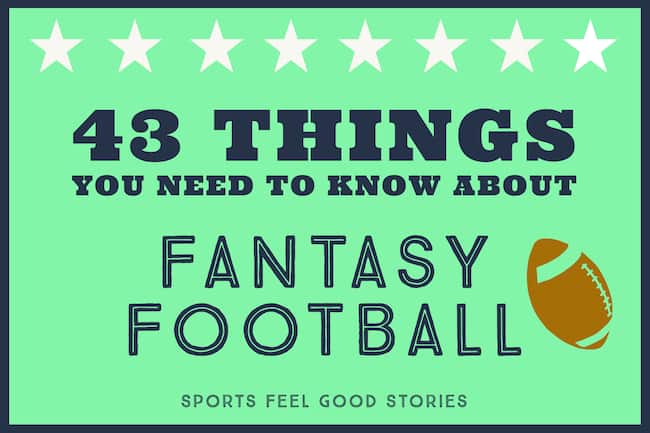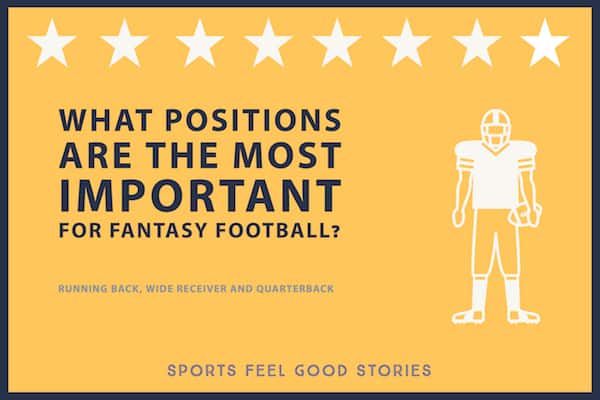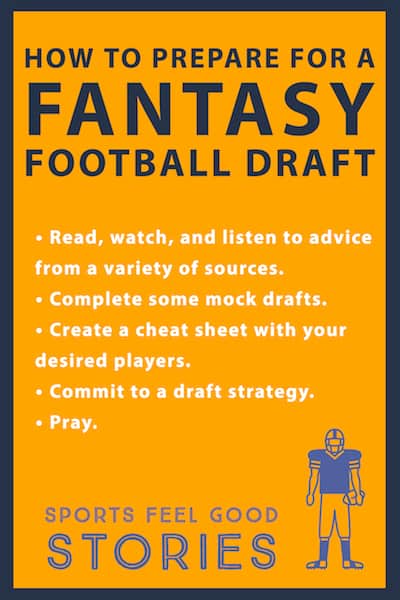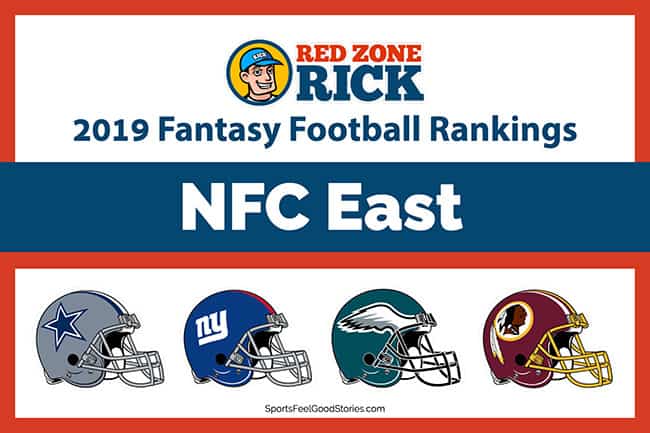This site was created specifically for people from Canada, for quick acquaintance with the gambling industry online. In today's article, you can know all about NFL Fantasy Football: The Basics in Canada. Our Canadian visitors have asked us so many times to write the review of "How to play Yahoo Fantasy Football, NFL Fantasy Football: The Basics in Canada" because of high interest in this topic. Well, the thorough investigation by our gambling expert had been already finished and we have collected here all useful information about NFL Fantasy Football: The Basics in Canada in one review. You may read it now!
NFL Fantasy Football: The Basics in Canada
After the draft ends, the real game begins. You'll need to keep track of who has a game in real life and move your preferred players from the "bench" into an active position, as only active players earn you points. You can also add or drop players throughout the season to mold the perfect team, but there's a few things to keep in mind as you're shaping up your team.
- Limited available spots - Your roster has a limited number of spots, so you'll often have to drop a player in order to add a new player.
- Maximum transactions - Some Private Leagues limit the number of adds or drops you can make. Ask your commish if you're unsure what the limit is (or if there is one).
- Waivers - Most leagues use our waiver system, which places a temporary freeze on dropped players. During this freeze, all managers on the team can place claims on the player (instead of having the first manager to see the player become available scoop them up). If multiple claims exist, a priority system is used to determine who gets the player.
How to play Yahoo Fantasy Football
Take control of your very own team of National Football League players! From the first game to the end of the regular season you'll manage your team's roster and lineup, earn fantasy "points" based on your active players' real-life performance, and compete with other people in your league for the best accumulated "points" to be crowned champion. Use this guide to understand the basics and get ready for kickoff!
Decide if you want to be a Manager or a Commissioner
There are 2 active roles that you get to choose from before you start playing.
- Manager - Everyone who plays Fantasy Football is a manager. Managers draft a team of fantasy players and compete against other managers. They follow rules defined by Yahoo or a commissioner.
- Commissioner - The commissioner (aka commish) is also a manager, because they'll play right alongside other managers, but they also decide how a Private League is ran. This means they're in control of every setting and rule the league uses. In a way, they also manage the managers, since they can lock out or remove a manager for any reason. You can become a commish by creating your own Private League.
Find the scoring format that best fits your style
The scoring format defines how real-life player performance and stats translates into in fantasy "points." Fantasy Football has 2 different scoring formats.
- Head-to-Head - Face off against a new manager each week for the best weekly stats. The manager who has the most weekly wins takes the crown.
- Points Only - Specific stats translate to a static point system. Go up against your entire league all season long for the most accumulated points.
Join a league with other managers
A league is simply a group of people playing and competing in the same game. There are several different types of leagues you can join or create. For the most part, the gameplay is the same, it's really just a matter of deciding who you want to play with and if you want to play for free or for a fee. You'll be able to take part in several leagues at once, if you like.
- Public Leagues - Free leagues that you play with people from all over the world. These leagues use a number of default settings that can't be changed.
- Private Leagues - Free leagues that you play with people you or the commish know. The commish gets to define every setting used and can customize quite a bit.
- Public Prize and Private Prize Leagues - (formerly Pro and Cash leagues) Pay an entry fee, play with public players or people you know, and the top finishers will earn a cash prize.
Draft players to join your team
After the league fills up with managers, a draft is held. Just like in real life, managers compete against each other to scoop up the best NFL players. There are few different draft types that can be used.
- Live Standard Draft - Managers take turns adding players to their roster until all roster spots are full.
- Live Salary Cap Draft - Managers get a budget and take turns placing offers on players until rosters fill.
- Autopick Draft - An automated system that drafts players for managers based on a ranking system.
- Offline Draft - A league conducts its draft however it wants and the commish enters the results into our system.
Manage your roster and lineup
After the draft ends, the real game begins. You'll need to keep track of who has a game in real life and move your preferred players from the "bench" into an active position, as only active players earn you points. You can also add or drop players throughout the season to mold the perfect team, but there's a few things to keep in mind as you're shaping up your team.
- Limited available spots - Your roster has a limited number of spots, so you'll often have to drop a player in order to add a new player.
- Maximum transactions - Some Private Leagues limit the number of adds or drops you can make. Ask your commish if you're unsure what the limit is (or if there is one).
- Waivers - Most leagues use our waiver system, which places a temporary freeze on dropped players. During this freeze, all managers on the team can place claims on the player (instead of having the first manager to see the player become available scoop them up). If multiple claims exist, a priority system is used to determine who gets the player.
Customize your profile
Now that you know how to play Fantasy Football, personalize your profile to make it your own!
Guide to the Best Fantasy Football Betting Sites
Sports data analyst/content creator Sal Vetri is an NFL Show Host for Daily Fantasy Sports site Awesomo.com, plus runs a personal YouTube channel boasting thousands of subscribers. He specializes in DFS, covering NBA, WNBA, NFL, MLB and PGA golf too.
What is Fantasy Football?
Fantasy football websites allow you to step into the shoes of the best NFL coaches such as Bill Belichick, Andy Reid and Pete Carroll and make strategic choices. They offer the most interactive type of NFL betting with cash prizes, requiring constant thought and tinkering to create the best team and win real money.
We've laid out the simple steps on how to join an NFL fantasy draft league, so you can learn how fantasy football works and be at the helm of your own team in no time:
10 Steps: How to Play Fantasy Football
Use one of our recommended best fantasy football apps or sites to get started.
Join an NFL fantasy football league, which can cost anything from nothing through to hundreds of dollars.
Research the NFL: identify the best players in each position and consider the league’s scoring system.
Select the best players for each position, without spending over the allocated amount.
Watch your players take part in real NFL games, noting how many points each player is earning.
Is one of your players not performing? You’ll be able to trade him for another at any point in the season.
Continue watching games throughout the regular season, all the while making changes to your line-up.
If you finish near the top of your NFL fantasy league, you’ll qualify for the playoffs. If not, your season is over.
The playoffs winner claims a cash prize, as well as the recognition for being the top fantasy football player.
Repeat the whole process all over again when the next NFL season gets underway.
Sal Vetri's Expert Fantasy Football League Tips
Daily Fantasy Sports expert Sal Vetri, who has his own dedicated YouTube channel on the topic, talks us through the best fantasy football leagues to play.
Watch the short videos below to learn a basic overview, strategy, tips and pros & cons on each, to help you choose the best NFL fantasy league for you. Then, when you are ready, you can pick one of our recommended sites to start playing.









Our Top Fantasy Football Betting Sites in Canada
Types of NFL Fantasy Football Leagues
There are a number of different types of fantasy football leagues to choose from. Discover the basics of the top fantasy football money leagues and find the best one for you below:
Standard Scoring
A simple form of fantasy betting. Offensive players score points for specific actions, like touchdowns and runs, while the defense is selected as a unit. Most NFL fantasy leagues use standard scoring.
Point Per Reception (PPR) Scoring
Similar to standard scoring, but the receivers get a point for every reception. This makes wide receivers and tight ends more valuable than in a standard scoring game. Always keep an eye out for the PPR fantasy football rankings.
Touchdown Only Scoring
The most basic type of fantasy football, where a player only scores points by getting into the endzone. This type of scoring is not seen a lot nowadays, as most fantasy players prefer something a little more detailed.
IDP Leagues
In standard scoring leagues, defenses are selected as a team unit. In IDP leagues, though, individual defensive players are picked, and they earn points for specific defensive actions, such as sacks and interceptions.
Auction Leagues
This fantasy football league uses an auction for player selection, meaning you bid against others for a player. So, you might end up paying big bucks for Patrick Mahomes, but you’ll have to spend less elsewhere.
Re-Draft Leagues
Re-Draft fantasy leagues see you start again every single season, not retaining any players from the previous season. This makes a fantasy draft a little less confusing than alternative options. Some sites offer fantasy football mock drafts, where you can practise.
Keeper Leagues
In a keeper league, a certain number of players from the previous year can be kept, and the remaining positions are then filled using a draft. This allows players to retain their most impressive stars from the previous year.
Dynasty Leagues
Most realistic to the NFL, a dynasty league sees players retaining their entire squads from the previous season. It rewards those who build for the future, by drafting fantasy football sleepers and promising young players.
Survivor Leagues
These differ considerably from all other fantasy football leagues. Rather than competing for the entire season, a survivor league sees the player at the bottom of the table every week being eliminated.
Daily Fantasy Leagues
These are much quicker games, as you simply pick the best possible team for the upcoming round of fixtures. Perfect for those looking for immediate excitement, but not great for those looking to immerse themselves in the game.
Fantasy Football Rankings
For up-to-date team and player rankings for any type of league, the ESPN fantasy football site and our other recommendations will provide everything you need.
To get other in-depth analysis and information, you can also check the CBS fantasy football rankings as well as the Yahoo fantasy football site. They offer perks such as the below:
- List of the top fantasy football players each game week
- NFL Fantasy football team names and their form
- Cheat sheets for knowing when to trade
- Expert fantasy football picks and podcasts
- Specialist fantasy football trade calculators
Fantasy Football Calculator
To work out the different odds and win margins, check out our fantasy football calculator below. If you are looking for an up-to-date fantasy football trade calculator, your best bet is using one from an official site.
Top 5 Fantasy Football Betting Tips
Fantasy football gambling fans use different methods to increase their chances of success. Here are our top five fantasy football strategies and tips for those new to the game:
- Forget quarterbacks at the beginning of a fantasy football draft. Instead, concentrate on drafting top running backs and wide receivers.
- Always research. Including watching college football, to see which new prospects, or fantasy football sleepers, are worth selecting.
- Stay active, making changes to your fantasy football team throughout the season depending on how players are performing.
- Study the scoring system regularly, and then tailor your team accordingly to maximize the points you score.
- Play at a reputable fantasy sports site, such as the ones we recommend, as you can be sure that they’re fair and secure.
Best Fantasy Football Apps
Manage your teams, leagues and more on mobile more efficiently by downloading a fantasy football app. View our pick of the best fantasy football apps for betting in Canada below:
| Fantasy Football Site | App Rating | |
|---|---|---|
| ESPN Fantasy | 4.9/5 | Play Now |
| Fantasy Draft | 4.7/5 | Play Now |
| NFL Fantasy | 4.5/5 | Play Now |
In particular, the ESPN fantasy football app and site lets you access all the latest rankings, tables, live scores and provides expert analysis and advice.
NFL Fantasy 101: All you need to know about the draft
Thank you for signing up for another edition of Fantasy 101. Today we are going to cover the draft. Which is typically the best part of your fantasy experience. You get together with friends. Some years it can be a destination experience where your whole league travels to places like Las Vegas or New Orleans like the real NFL Draft. You can have it in somebody's backyard. Or even in Zoom meetings. Regardless, this a great chance to connect with your league and have some fun.
This, though, can be the most excruciating part of the draft. Figuring out a time when it works for everyone. It starts with a text chain and typically ends with longtime friends not speaking to each other. Just kidding. Barely. But the basic rule of thumb is to have your draft as close to the start of the regular season as possible. In most normal years, the third weekend of the preseason because that is the final week the starters play. This year is a little different. But we want to schedule the draft as close to the start of the season so you can be as up-to-date as possible. Most position battles will have hopefully been settled (I mean we are all watching this Bears quarterback situation, right?). You'll get a chance to see new players in new places. You want to have as much information as possible, so wait as long as possible.
And hope your friends can mend fences at the draft.
DRAFT ORDER
There are many schools of thought here. The NFL Fantasy App (download here) will randomize your draft order for you. This is good because if anybody gets too heated about getting the ninth pick in the draft (which is the worst), you can blame the app.
But if you want to be more creative, that works, too.
Some leagues will determine draft order by Madden tournaments. Go-kart racing. Push-up contest. Punt, Pass and Kick. I have a league with a bunch of my mates in the UK and we did the 100-yard dash. Although I dispute my time because I was delayed by the Zoom broadcast.
If your league has been around for while, you can take a nod from the NFL and base your draft order on the previous year's finish, as the team with the worst record gets the top pick in the draft. There are many different ways to make this happen, don't get too hung up on it.
HOW DO YOU PICK PLAYERS
Your fantasy draft will be very similar to the NFL Draft. But where the NFL Draft has an order that repeats with one team drafting first in every round; most fantasy leagues use a "snake draft" order. What that means is the last team to pick in the first round,В gets the first pick in the second round. For instance, if you have a 12-team league and you draft 12th, you get the first pick in Round 2. Then you pick 12th in the third round. First in Round 4. And so on.
There is also a time limit for your picks. Otherwise your draft would last forever. And while the draft is a lot of fun, you have to go home at some point. Most leagues use anywhere from 30 to 90 seconds per pick. Although that UK league I was talking about earlier one time had a 5-minute time limit between picks. Fun if you're in Liverpool drinking Bushmills. Less fun if you were sitting in a coffee shop in Manhattan. If you don't pick a player in time, the NFL Fantasy App will auto-pick the highest-ranking player on the draft board.В
WHO DO YOU DRAFT?
There is no official way to set up a league. But NFL.com standard leagues include a quarterback, two running backs, two receivers, a tight end, a flex (running back or receiver), a team defense and a kicker. Your job is to draft a starting lineup. And a number of bench spots determined by the commissioner. (Of course, there will likely be more bench spots for this season.)
There is no rule to what position to draft first. But since this is your first time playing, I would suggest drafting two running backs to start your draft. You can use the rankings as a guide or again, let the app auto-pick for you if you're not sure. You don't always want to auto-pick. But you're new. We will allow it.
Here is a basic rule of thumb I always like to go by that might come in handy for you. Draft good players. How can you lose now? If you have some player-specific questions, hit me up on Twitter or IG and I will try to help you as much as possible.
Guide to Fantasy Hockey
Hockey
glossary
Hockey
Guide to Hockey
Hockey
Guide to Fantasy Hockey
Hockey
We promise you don’t have to be able to name the entire Toronto Maple Leafs roster like that hockey bro in your office in order to be at the top of your fantasy league. Here’s #thegist on the important stuff.
Just Google the word “fantasy” and it’ll land you right in the thick of podcasts, YouTube videos, articles and draft predictions for the four major sports leagues (that’s the NHL, MLB, NBA and NFL). This fantasy stuff is a ! In fact, we also have a guide to fantasy football and a guide to fantasy basketball you can check out. But back to hockey…
WTF is fantasy hockey?
Fantasy hockey is one part real, one part fake and 100% a whole lot of fun. Your mission, should you choose to accept it, is to pick a team of players that is better than any other team in your fantasy league. The players are real, the points they score are real, but the combination of players together is what makes it fantasy. You have the opportunity to create a dream team (or the dreamiest looking team, depending on your draft strategy *swoon*) made up of your favourite players and, ideally, the players you think will do the best this season.
Okay, I’m in. How do I play?
To play, you’ll need to join a league. A lot of workplaces will get groups together to do this. Or you can join a league for free online. We’d recommend taking a look at these websites:
- (this is the most common)
Then it’s time to do a little prep work (this is a lot more fun than homework or that powerpoint presentation your boss keeps hounding you for). You’ll want to make up a list of players that you have the most interest in and want to try and get on your team. Most often, teams are made up of nine forwards, six defensemen, one utility player (forward or defence, your choice), two goalies and five to seven bench spots (these are the extra guys you’ll need when someone gets hurt, goes on a cold streak or doesn’t play for a few days).
Each day, as an owner, you get to set your lineup and pick which players hit the ice and which players will ride the pine. Then sit back and relax as your fantasy site calculates scores for you live, so you can watch your guys play in real life and watch your fantasy team rocket to the top of the standings at the same time.
Got it. But how do I be good?
You could pick your team based on best hockey flow (oh hey there ) but maybe go with something a little more practical if you want to compete with the best fantasy owners in your league. and have some top player lists that can help you with this.
If your league is hosted on Yahoo (which it likely is), the site will also give you a list of players the experts think will have the best season. Don’t get overwhelmed by these sites. They’re showing you way more information than you’re probably ever going to need to know.
This sounds fun. What else do I need to know?
Here’s a list of things that will definitely come up so you’re ready for the big leagues.
Draft Day - This is undoubtedly the most important day of your fantasy year because this is the day that you get to build your team. The most common type of draft is a snake. Each team will have a predetermined draft number (if your league has ten teams, you’ll get to draft somewhere between first and 10th). In a snake format, the 10th team to draft also gets to pick the 11th player because the order switches directions. This means that, as awesome as it is to draft first, you’ll have to wait around until the 20th player to get to choose again.

Your goal is to draft the best player that’s still available. And don’t worry, Yahoo will give you suggested picks so you don’t have to frantically flip through your research if the guy you really wanted went one draft pick ahead of yours.
ADP (Average Draft Position) - Each fantasy site will show the average draft position of players. This is the average spot that that player was taken across all of the drafts run on that website. The higher the ADP, the more in demand that player is.
Trades - Just like the real NHL, your league will give you the option to trade. This can be great news if the #1 player you really wanted on your team went to someone else, though you’ll likely have to give up something big in return. Trades are a great way to shake things up and get access to players you might have thought were gone forever.
Waiver Wire - This is where you’ll be able to get players that weren’t chosen in the draft. Sometimes players get hurt or they underperform and you’re going to want to give them the snips. (Don’t worry, we won’t tell them *wink*) You can replace them with players from the waiver wire. As long as no one else owns a player, they are fair game for you to add to your squad.
Sleeper Pick - These guys are not actually asleep (hopefully). A sleeper pick is a player that has the possibility of being a big breakout star, kind of like an underdog. It’s not a guarantee, but if you get lucky he could be one of the best guys on your team. At one point, both and were sleeper picks — now they are two of the best guys on their respective teams.
Head-to-Head - This is the most common type of fantasy league. Say your league has 12 teams, each week you’ll face off against another team. Your goal is to be better than the team you’re up against in a number of categories; goals, assists, shots on goal, blocks, hits, etc — the categories will depend on your league. At the end of the week, you’ll get one point per category that you won.
Rotisserie League - Wipe the drool off your face, this has nothing to do with chicken (unfortunately). This type of league might be a little easier to understand than head-to-head. Think of rotisserie like “total points.” Every category is tallied from the beginning of the season to the very last game. To win, you must have the most points at the end of the year.
Each league will have categories that are a little bit different (some might include penalty minutes, others might not), so tweet us questions ( or ) if you want help with your specific league!
Some draft tips to get you started:
- Get acquainted with the top ten guys in the league. It’s always going to be debatable, but your first-round pick is probably the most important.
- There is no right or wrong way to draft, but try to get a core group of players early (three forwards, two defense and a goalie) and then start to fill in the gaps where you think you might be lacking talent.
- Don’t waste a high draft pick on a goalie – sometimes they pay off, but more often than not they aren’t worth reaching for. Goalies are notoriously unpredictable, and even the best in the league (like ) can have bad seasons. You’re better off taking a more reliable player with that draft pick.
- OUR HOTTEST TIP: Still stressed after reading all of this? You can stage a mock draft online on Yahoo . This comes with no pressure and just gets you acquainted with how the drafting process works. We cannot recommend this enough if you’ve never joined a fantasy league or drafted before. Practice makes perfect and all that stuff, ya feel?
Fun fact to share on draft day:
Fantasy hockey might not be the biggest fantasy format, but it was the first! Fantasy hockey launched on the web in early 1995 and it paved the way for all other fantasy formats.
Still have questions? That’s what we’re here for! Slide into our DMs, tweet us or hit us up with an email — we want to help you be the best fantasy hockey owner you can be.
Written By: Alexis Allison
GIST Guest Writer and Hockey Guru
Don't get The GIST’s twice-weekly newsletter yet? Let's make it email official.
How to Play Fantasy Football

Fantasy football is awesome. For those new to the experience, it's the opportunity to create your own personal NFL team, without the drawback of paying out millions of dollars or dealing with player agents. You can mold your roster into exactly the kind of experience you want. Draft your favorite players, choose your ideal roster construction and crush the competition with the vast array of tools and resources available here at 4for4. Simply put, fantasy football is the accumulation of fantasy points based off of real-life statistics. Score more fantasy points than the other owners in your league, and you win. Simple as that.
There are many different guidelines and variations to the game, but the principle remains the same: Your job as the fantasy owner is to draft, manage, and adjust your team in whatever ways your league allows that will net you more fantasy points each week than your opponents.
Scoring and rules can vary from league to league, but generally speaking, you have to compile a team of NFL players that will score points every time they accumulate statistics. These can range from standard offensive leagues where touchdowns and yards reign supreme, to more advanced defensive formats where tackles, sacks and interceptions can guide your team to victory. The more points your team scores, the greater chance you have to be victorious.
As you may already know, fantasy football can be played for money, with investments ranging anywhere from a few bucks to thousands of dollars. It can also be played just for bragging rights.
Regardless of the monetary stakes for your league, fantasy football is a fun experience that brings together people from all walks of life.
How Does Scoring Work in Fantasy Football?
Here's a typical scoring format:
| Category | Points |
|---|---|
| Passing Yards | 1 pt / 25 yds |
| Rushing Yards | 1 pt / 10 yds |
| Receiving Yards | 1 pt / 10 yds |
| Receptions | 1 PPR / 0 Standard |
| Passing TDs | 4 |
| Interceptions | -2 |
| Rush/Rec TDs | 6 |
| Field Goals | 3 |
| Extra Points | 1 |
| Two-Point Conversions | 2 |
| Defensive TDs | 6 |
| Sacks | 1 |
| Safeties | 2 |
| Interceptions | 2 |
| Fumble Recoveries | 2 |
Sites often differentiate between point-per-reception (PPR) leagues and standard-scoring leagues. PPR leagues used to be a rarity, but are now even more prominent than standard scoring leagues. Nowadays, standard scoring is often replaced with the term Non-PPR, as its lost its default status.
You may see variations in scoring that include points for individual defensive players, special teams, tackles and just about everything else, but the system listed above is the most common.
All league types and scoring systems are fun, and there’s no right or wrong league type, but be sure to know which kind of league you’re in before your draft, and be aware that many reference sources use the above scoring system for rankings and advice.
Which NFL Players Will Be On Your Fantasy Team?
Typically, a fantasy football league includes drafting somewhere between 16 and 20 players. Fantasy teams have starters and backups, just like real NFL teams do.
Most leagues start 1 QB, 2 RBs, 2-3 WRs, 1 TE, 1 K and 1 Team Defense. Most leagues nowadays also start 1 Flex, which can usually be filled by your choice of a RB, WR or TE. With subtle variations, this is most likely the type of league you’ll be involved in. There is also a growing popularity for leagues that start 2 QBs or a Superflex position, which can be a QB, RB, WR or TE.
As with all things, fantasy football leagues have evolved over time into many different types. A common variation is an auction league, where players are auctioned off rather than drafted, with a pre-determined amount of money allowed for each owner to spend on their entire roster. If you’re in one of these leagues, check out the Auction Strategy 101 guide.
Here is a full list of non-traditional league types:
| League Type | Description |
|---|---|
| Auction | Instead of a draft, owners are given a salary cap to bid on players with. |
| 2QB | Owners designate not one, but two quarterbacks for their starting lineups each week. |
| Best Ball/MFL10 | Draft-only league where owners do not set lineups or make roster moves. |
| Daily/DFS | One week leagues where rather than a draft, owners are given a salary cap with which to make a lineup. |
| Dynasty | Owners can maintain their entire team from one season to the next. |
| FAAB | Same as a standard league but owners have a free agent acquisition budget for acquiring free agents. |
| IDP | League where individual defense players are drafted. |
| Keeper | Owners can keep a designated number of players from one season to the next. |
| SUPERFLEX/OFLEX | Owners have the option to use a quarterback in their flex position. |
Regardless of the league you join, become a member at 4for4 and dominate! Subscribers have access to IDP rankings, auction league values, advice on keepers, customizable rankings, and much more. 4for4 specializes in every conceivable type of fantasy football, and will be able to help you win regardless of format.
It’s worth noting that Daily Fantasy Sports (DFS) has become a huge part of fantasy football. DFS requires a completely different strategy than traditional seasonal leagues, and 4for4 has a completely separate subscription completely dedicated to being a profitable DFS player. For more information, see the DFS subscription page.
Where Can I Play Fantasy Football?
The vast majority of fantasy football is played at either ESPN.com, Yahoo.com, CBS.com, NFL.com, and MyFantasyLeague.com. If you’re new to fantasy football, you may want to start with one of these tried and true options. They generally have open leagues you can join or the option to create new leagues, either private or public, that can help you get started.
The aforementioned sites are also great for customizable settings. Once you join or start a league, take some time looking through the league settings and getting yourself familiar with roster sizes, scoring systems, waiver rules, and other important factors to prepare you for an action-packed fantasy season.
Play Fantasy Football Because It's Fun!
While all fantasy sports bring a certain level of enjoyment to a person’s life, with fantasy football this is especially so. Since the NFL is structured in such a way that most of the games occur on one day of the week, and over a third of the regular season games are nationally televised, you'll have the opportunity to watch many of the players on your fantasy team score fantasy points for you live throughout the season if you so choose.
Fantasy sports have invaded not only people’s personal lives, but families, work spaces, and friend circles, and its popularity is still growing tremendously. The Fantasy Sports Trade Association (FSTA) estimated that in 2015, 56.8 million people in the USA and Canada were playing fantasy sports. The FSTA states that number has grown from an estimated 500,000 players in 1988.
Fantasy football can also be a way to bring people from all different walks of life together. No longer dominated by men, FSTA estimates that currently, 34 percent of players are women.
Fantasy football brings together people who love statistics, technology, sports, and/or competition all into one fantastic activity where everyone has a shot to win. You don’t need to be the biggest, the strongest, or the smartest person in the room to win your fantasy football league. You just have to do a little homework, build your team, and have a great time. Of course, a subscription to 4for4 will go a long way.
How 4for4 Helps You Win Your Fantasy Football League
A subscription to 4for4.com provides you with everything you need when preparing for and engaging in fantasy football.
With year-round, up-to-the-minute fantasy-relevant news, content, and rankings updated in real time, you can prepare for your draft and stay informed throughout the entire fantasy season.
Drafting early? 4for4’s rankings come out in May, just weeks after the NFL Draft (4for4 has tons of content of incoming rookies as well).
Your league extends all the way to the Super Bowl? 4for4 has you covered with the industry's most accurate weekly rankings, as well as player profiles from expert fantasy scouts, all the way up to the final game.
Below, let’s review some more specifics on how 4for4 addresses your needs perfectly and makes winning that much easier:
4for4 Has Industry-Leading Rankings Accuracy
If you want to be the best, you have to learn from the best. Rankings are put together by John Paulsen, the most accurate fantasy football expert in the business. John was named the Most Accurate Fantasy Football Expert by FantasyPros for both the 2010 and 2014 seasons, and was the runner-up in 2011. He also finished fourth in both 2012 and 2015. Accurately predicting the stats of NFL players is an essential but difficult task, so to find someone with the kind of consistent track record that John has with projecting player stats is astounding. Winning your fantasy league comes down to predicting which players will score the most fantasy points, and from 2010 to 2015, Fantasy Pros ranked 4for4 as the most accurate source for fantasy information out there!
For more information on 4for4's incredible accuracy, please refer to the accuracy page. Also note that during the season, 4for4 tracks projection accuracy on a week-to-week basis and publish detailed comparisons of projections to actual player performance in the Forecast Accuracy Report.
4for4's Rankings are Updated in Real Time
Once initial rankings are released. they are constantly updated in real time as things change throughout the offseason and into the season. There are many reasons to update rankings on a consistent basis -- injuries, roster moves, demotions, and promotions, to name a few. Players excel in camp and earn larger roles, quarterbacks develop better timing with receivers, schemes change to feature certain players more prominently than others, and so on. All these factors can lead to a change in how players should be ranked.
The crux of fantasy football is analyzing stats and information to accurately rank players. Everyday, the 4for4 team mines through the data and news to consistently find new insights that help you win. For example, many novices (and some experts) may only be looking at stats from the previous season without fully considering the context. For example, say you're looking a WR's stats from last year (e.g. 27 catches, 453 yards, and 6 touchdowns) and determine that player is not a good fantasy option. 4for4 would point out that that over half of that production came in the last four games of the season when the WR came into an increased role that will continue in the current season. This changes things entirely. Keeping up with 4for4's rankings will help you to catch these potential oversights and find value in your draft so that your team is always one step ahead of everyone else's.
4for4 has many tools at your disposal to make the process of assembling the best team in your league easier. Average draft position (ADP) information is compiled in the Multi-Site ADP Tool so you can keep track of exactly when the players you want are getting drafted, and the Draft Day Bargains calculation enables you to beat your league mates to the punch at drafting the best players.
4for4 also has cheatsheets which have every player ranked by position and overall. Print off these cheatsheets, or simply keep them open in a window during your draft, and you'll avoiding scrambling for information at the last minute to decide who you should pick in the draft -- remember, you generally have one minute or less to make each pick. 4for4 creates these cheatsheets based on a proven, time-tested forecasting model to give you an inclusive, effective list of rankings for each position.
4for4 Keeps You Informed
It pays to diligently read headlines, check all news sources and generally know what's going on in the NFL. But who has 16 hours a day to do all the digging? 4for4 does!
For starters, 4for4 has an e-mail service which updates you on all of the important the fantasy-relevant news and also the site's best content. It's easy to sign up and easy to opt out. This is a quick and effortless way to get quality information that will keep you up-to-date on fantasy-relevant news around the NFL.
4for4 also has a section dedicated specifically to NFL news. Check this section out on your lunch break or before you go to sleep to find out the latest happenings in the NFL. This allows you to stay up to date on current fantasy-related events, without having to go to multiple sites or pore over the Twitter accounts of every beat writer. The news section includes league news, team-specific news, and positional listings of what's happened recently with each NFL player. This is great if you're wondering if that rookie quarterback has signed, or how well that injured running back is recovering from surgery. Other news sections on the website include rookie reports, off-season movements, and more.
With in-depth articles posted frequently on the website from some of the best writers and analysts in the industry, 4for4 also provides different perspectives on what's happening around the league and its fantasy relevance. This includes fantasy trends, overvalued (and undervalued) prospects, tips for drafting from specific positions, early camp reports, and much more. There are even sections for content on IDP leagues, and of course, daily fantasy. Reading up on the different sections can make you the most educated and prepared person in your draft room -- and all season long.
Don't Stop Managing Your Fantasy Football Team After the Draft
Some new fantasy managers stop paying attention to their team after their draft. They prefer to watch for injuries and bye weeks and stick to the roster they chose and the starters they established.
4for4 does all the legwork for you here as well.
Subscribers have access to a full section dedicated to schedule analysis (a.k.a. Hot Spots), which can help you plan who to draft for a committee or who to pick up on the waiver wire. You can identify which players on your team have the best matchups each week with 4for4's exclusive schedule adjusted fantasy points allowed (aFPA) metric.
And if you’re still left wondering what decision you should make about a player, draft pick, or trade, 4for4 even has a Discuss Your Team Forum, where fantasy scouts and other members are available to answer your questions and engage in a little fantasy chatter.
4for4's team of experts love fantasy football and want to do everything possible to ensure you win your league!
Fantasy Football: 43 Questions and Answers
Fantasy football and its participants have exploded over the course of the past 10 years. With over 60 million participants in fantasy sports, it is one of the driving forces in the popularity of the National Football League.
During the preseason, draft, and the regular season, it provides fans plenty of grist for the Internet and office water cooler conversations. Who could’ve foreseen this level of popularity?
So, whether your a participant or not, it helps to know about the game if just to understand the dialogue of friends and colleagues. So, with that in mind, we’ve collected some common questions that people ask about fantasy football and assigned Red Zone Rick to supply the answers. Here’s the result.
1.) What is NFL fantasy football?
Fantasy football is an interactive multiplayer fantasy sport where teams are comprised of (mostly offensive) players from the National Football League and managed with a combination of skill and luck. Scoring is based on player statistics. Matches are played on a weekly basis corresponding with the NFL schedule.
2.) How does fantasy football work?
A league is usually comprised of anywhere from 8-14 teams and teams are established by selecting desired players through a Fantasy Football Draft or Auction. Each week team managers select the players to “start” in their line up. Teams face off head-to-head and the team with more points after the week is completed is the victor.

3.) Is fantasy football free?
Yes. But most leagues will create a “pot” which is awarded to the champion at the end of the season. The buy-in can range from $5 to hundreds of dollars depending on how serious the league and its players are.
4.) Is fantasy football gambling?
Some people would certainly argue it is. However, there is a strong degree of skill involved and not just luck. You can call it what you like, but if there are buy-ins and a victor’s pot, it sure has a lot in common with gambling.
5.) Are NFL referees allowed to play fantasy football?
No. They are not supposed to.
6.) How many people do I need for a fantasy football league?
The standard rule of thumb is that the best leagues function anywhere from 8-14 teams, with 10-12 being the target number. However, there is no rule that says leagues can’t be formed with fewer or greater numbers, with some leagues reaching into the ’20s or more.
7.) What is the role of the league commissioner?
The league commissioner is in charge of forming and regulating the league. The commissioner creates the league and invites or authorizes the managers. The commissioner does everything from establishing the scoring metrics and setting the draft date, to collecting buy-in and even policing the league at times. It is important to have a level-headed commissioner.
8.) How closely does fantasy football replicate the real NFL?
As any diehard NFL fan will tell you, fantasy football does not replicate the real NFL. But it does conglomerate player statistics into a scoring metric to make a number which is identified as “points”.
9.) How long has fantasy football been played?
Fantasy football has been around for decades. However the modern way of playing really took-off with the popularization of smartphones.
10.) How big is the business of fantasy football?
It’s estimated that fantasy football is a $7 billion dollar business in the United States and Canada. Some 60 million players are involved in fantasy sports according to the Fantasy Sports Trade Association.
In the last decade, fantasy football has gone parabolic. Every year it has been gaining popularity. Many NFL players even play now. As a result: sports talk shows, companies, websites, youtube channels, podcasts, and radio broadcasts have all been created to cater to the rising demand.
11.) Does fantasy football help or hurt the NFL?
It certainly helps the business and popularity of football. The NFL has been shifting into a more offensive league as of late, promoting more scoring and taking power away from the defenses in an effort to increase player safety while making the game more enjoyable to watch.
Viewership of games featuring lesser-known teams must improve as a result of so many fantasy football participants. Folks might continue to watch a blowout between two non-contenders just to see if their running back is able to make it into the end zone.
12.) What are fantasy football handcuffs?
A fantasy football handcuff usually pertains to a clear-cut backup running back. The logic is if you draft a running back with one of your top picks, selecting his handcuff in the late rounds makes sense to ensure your return on investment. Although the term could apply to other positions as well.
Handcuffs predominantly ride the bench strictly as an insurance policy in case something happens to the starting running back.

13.) What are fantasy football tiers?
Tiers are skill/ viability grades. Top-tier quarterbacks are the best of the best. Second-tier quarterbacks aren’t quite as good, etc.
14.) What’s the best way to play fantasy football with friends?
The best way to play fantasy football with your friends is to get everyone in a Yahoo or ESPN league. Plan a draft party and select a date that allows the maximum number of people to attend. Enable message boards so everyone can talk on the fantasy platform.
15.) What is the Can’t Drop List on the ESPN App?
The “Can’t DropLlist” is a designation for some fantasy football players. It is a regulatory tool that forces the owner to hold certain players on their team.
The “Can’t Drop List is made up of some of the best fantasy football players. It exists because those players are too good to become normal free agents because it would disrupt the balance of a league if one team dropped their best players and another team scooped them up.
16.) What is the Waiver Wire for fantasy football?
The waiver wire is a process by which free agents can be selected. If a free agent has a breakout game or suddenly becomes the desired player to own for any reason, the waiver wire is an organized selection process that gives everyone a chance to place a bid on the player.
Depending on the settings, the player will go to the team that either bid the most or owned the lowest (best) pick in the waiver.
17.) How do you keep score for fantasy football?
If you use one of the popular platforms then you will not need to do any work yourself to tabulate the scores. The platform will do it automatically and update your team points in real-time. The score is a sum calculated via stats for the players starting on a fantasy team.
18.) When should fantasy football begin?
It’s never too early to start planning, but the fantasy season doesn’t begin until Week 1 of the regular season. That means that the league and draft all need to be completed before Week 1 begins. Most people choose a date that is around Labor Day because the preseason is completed.
19.) What player position is the most important for fantasy football?
The three most important positions are running back, wide receiver, and quarterback. Quarterbacks tend to score lots of points, but the difference between a middle of the road QB and a top tier QB can be relatively small compared to other positions.
In a point-per-reception format, the wide receiver is the most important position because they simply have the ability to score the most points. Running backs are most important in standard-scoring leagues because of their ability to score short-yardage touchdowns.

20.) When do fantasy football playoffs start?
That depends on the league settings, but the standard first week of the playoffs in Week 14. Playoffs will usually continue into Week 15, and the championship will happen week 16. These are the best weeks because all the bye-weeks have been completed. Week 17 is avoided because too many NFL teams rest starters or have already mailed-it-in for the year.
21.) What are stat corrections?
Stat corrections are exactly what you think they are. When a stat is changed (due to a previous error in recording the stat) it often affects the score of a player. So a stat correction can sometimes change the outcome of a game. They are rare but occasionally do happen.
22.) When do stat corrections come out for fantasy football?
They usually come out as soon as they are discovered and can be corrected. This can be within minutes or days. Most stat corrections happen quickly.
23.) How to set up the draft?
The best way to set up a draft is to find a date and time when everyone can participate. Many people enjoy having a draft party where people physically gather at a planned location to draft. The computer should be instructed to randomly assign drafting positions to each team 1-hour prior to the start of the draft.
24.) How many players on each team?
The standard fantasy team has 9 starting positions and 6 bench spots. This makes for 15 players on a team. Some leagues allow an Injured Reserve spot on the bench only for players that are unable to perform.
25.) How do I prepare for the draft?
The draft is a delicate balance between improv and preparation. The best advice: have a group of players you want to target for all stages of the draft (Early, middle, late) but don’t fixate on any one player. Most leagues allow trades, so even if you miss out on a guy there are still ways of acquiring him.
A.) Read, watch, and listen to suggestions from a variety of sources. Podcasts, NFL Fantasy Live, and ESPN articles are a great place to start. Nobody truly knows what is going to happen this season, so get a variety of opinions. Two good starting points are Red Zone Rick’s Hot Takes for the 2019 season and the NFL Fantasy Football HQ.

B.) Do some mock drafts. ESPN has a great mock draft client and it will give you some valuable experience for what the draft will feel and look like.
C.) Create a cheat sheet. Like a grocery list, it’s always helpful to have a list to help you remember what you want to get. (But make sure to keep it to yourself on draft night).
D.) Develop your draft strategy. You may elect to go heavy on running backs the first four rounds. While others might consider just taking the best player available every round. You may choose to zero in on players from teams with potent offenses. Whatever you believe will work, keep the strategy in mind so you won’t be flustered under the bright lights of draft night.
E.) Pray to the fantasy gods that the players you desire to fall your way.

26.) What is a fantasy football sleeper?
A sleeper is someone that has big potential but most people don’t expect a strong performance. Sleepers often are boom/bust candidates. They can be excellent value picks/ plays when they work out. And huge headaches when they don’t.

27.) What are some drafting strategies?
Never take a defense or kicker before the last few rounds.
Tight ends are volatile so investing a lot in one isn’t always the best decision.
Quarterbacks tend to score a lot of points, regardless of if they are top-notch or a few degrees below the top tier. There can be an excellent value in waiting on a QB.
In a PPR league (point per reception) a running back that also catches the ball out of the backfield is extremely valuable.
Try not to reach anyone in the draft. Due to the drafting position you draw, you may be put in a position where you will miss out on a guy you are targeting unless you reach on him a round or two early. Avoid reaching. *instead, it is better to select a guy that is sliding.
Start off the draft by taking wide receivers and running backs. This is a safe strategy through the first 4 rounds.
Check out more strategies to win by clicking on the visual below.
28.) Why is it so important to have a good fantasy football team name?
Because the main reason to play fantasy football is to have fun. So having a fun name supports the bottom line. Your team name is a reflection of you as an owner – make sure it’s a good one. Here are some ideas:

29.) Do leagues get custom names as well?
Yes. Consider its branding. If you are starting a league, a great way to get people interested and keep them interested for next year is to have a memorable league name.
We’ve made it easy for you with a list of 85 suggested names.
30.) What type of awards does the league champ usually win?
There are a lot of creative ways out there to reward the league winner. Usually, the prizes are detailed before the draft begins. The most common way is to present them the 1st place prize winnings (gathered from the entrance fees); 2nd place commonly gets a consolation prize.
Other ways to award the champion:
A seat at the Champions table – a dinner of champions that are bought with the entrance fees and hosts all of the champions from years prior with the guest of honor being the reigning champ.
A trophy that is engraved each year with the team name of the newest champion.
A belt that is handed from last year’s champion to the new reigning champ.
A plaque validating the victory.
Even a custom champion’s ring if your league is really into it.
Fantasy Football Award Certificates. Personalize and send out awards weekly and at the season’s end.
31.) How to decide which player to start or sit?
The age-old question. 50% skill, 50% luck. The first factor: consistency. A consistent producer should be favored over a boom-bust producer.
The next thing to consider is an opportunity: is there a reason one player might shine particularly bring this week because of the matchup or changes in the offense? And the other factor is the “gut feeling”. Trust your gut if it is telling you to start a guy.
32.) How do I get better at fantasy football?
Knowledge is power. Listen to podcasts, watch fantasy reports, and most of all watch the games. The more you know the better. And if you want to get better as the season goes on: be active on the waiver wire as often as it takes.
If there is an impressive player available, it doesn’t benefit your team to let him go to someone else’s team.
Our own Red Zone Rick has broken down the best that each division has to offer by the team. Click on the link below to learn more.

33.) What tips do you have for after the draft is complete?
Don’t get too attached to any player. Seek trades. Winning games early in the season are more important than the middle of the season, so get yourself ready to win right away.
Don’t overreact to the first week: sometimes the players that show-up on Week 1 is more of a mirage than an indication of what they will produce all season. And, that’s the same for big players that start slow.
34.) What is the most important thing for beginners to know?
You are never out of the playoffs until you are mathematically eliminated, so never give up on a season, even if it seems bleak. Fantasy outlooks can pivot and change on a single player, so keep trying regardless of if the outlook seems dim.
35.) What are the rookie rankings?
Rookie rankings won’t really begin to pan out until preseason. Rookies can be great potential producers for your team at a cheaper price, but that’s because of the inherent risks associated with their lack of NFL experience.
36.) Is it important to keep up with fantasy football news?
Yes. Fantasy football is a different valuation scale than standard NFL football, so It is crucial that you keep up-to-date on fantasy news as well as news from around the NFL.
37.) What is daily fantasy football?
Daily fantasy football functions with many of the same scoring metrics as season-long fantasy football, but without the need of a league or a season-long team. Players are selected on a budget and the goal is to produce the maximum number of points with that budget by selecting the best performers of that week for their value.
DraftKings and FanDuel are the most popular daily fantasy platforms. Daily fantasy is usually played with money on the line.
38.) Do other sports incorporate a fantasy game?
Yes, virtually all sports have a fantasy version now. Basketball, baseball, and hockey are some of the most common, but everything from soccer to cricket can also be played.
39.) Should there be a punishment for getting the last place?
A fairly common strategy for leagues is to incorporate a last-place punishment. It is usually something fairly mild but nevertheless undesirable. The purpose of this is to keep all managers competitive throughout the entire season to avoid having to serve the punishment of the last place.
Some examples from leagues include extreme options like forcing the loser to get a tattoo of the other owners’ choosing. Or, forcing the biggest loser to take the ACT test again. More reasonable leagues might make the loser bring the beer to next year’s draft.
“Man, did you lose a bet?”
Yup, this guy from Arlington did big time.
But after coming in last in his fantasy football league, he didn’t back down from slathering up in peanut butter and standing in a dog park.
AT 10 on @wfaa–how this hilarious photo is going viral. pic.twitter.com/fU4ABB1XNq
— Matt Howerton (@HowertonNews) February 19, 2019
40.) Should your league allow a trade veto?
Most leagues will enable the managers to vote on if a trade is fair, which gives the league the ability to deny a trade that will benefit one team too heavily.
41.) When do players “lock-in” to the starting spots?
Most leagues have players locked in at kickoff. That means when an NFL game starts, a player cannot be moved from the bench to a starting spot or from a starting spot to the bench. Example: for a Thursday night game only players belonging to the two teams playing Thursday will lock-in at kickoff.
42.) Are there players that can play multiple positions?
Yes, but it is rare. Sometimes a player can be slated as either an RB and WR or any combination, as long as they legitimately play that position.
43.) Is it smart to trade away your best player?
Over the duration of the season, you will probably receive trade offers for your best player. Use caution against trading him away–there is a reason other managers are trying to get him. Instead, make a counter trade that has more value for you. If the other manager really wants your guy, they might just be willing to overpay.
The Future for Fantasy Football
As you can see, the game has created its own lingo, strategies, and tactics for success. Will fantasy’s surge in popularity continue? Hard to say, but there are reasons so many folks are currently involved. They enjoy the game.
And, while we can give you some of the basics in Q & A format here, one of the best ways to learn the game is not to dip your toe in, but rather, to jump in and join a league. Give it a shot and see what you think.
— Red Zone Rick
Rick dreams in color which usually takes the form of football diagrams and mock draft notes. His credo of “Knowledge is Power” has served him well for the many fantasy leagues in which he participates.
Daily Fantasy NFL Football Strategy

It’s a testament to the league’s popularity, especially considering there are basically only 17 Sunday game days, aside from Monday and Thursday contests. The number of games pales in comparison to sports like baseball or basketball, where games are being played every night for months.
As of 2014, there are millions of dollars in guarantees every week across multiple sites. DraftKings and FanDuel both offer two huge Sunday million dollar tournaments, plus loads of other guaranteed games.
This article will be a primer on building a winning lineup for daily fantasy NFL contests. We’ll focus on each position and go over a strategy for building for both cash games and tournaments (GPPs).
Fantasy Football Basics
This section will focus on the core elements of building a lineup from scratch and a way to narrow down the large list of players into guys you are considering. There are a lot of things to consider when you’re putting together the “perfect” fantasy football lineup, especially when you’re playing heads up matches on a weekly basis.
Betting Lines
If you’re already a sports bettor, then you understand how accurate betting lines are when it comes to predicting the outcome of games. The bookmakers simply can’t get it wrong too often, or it will cost them, big.
That’s why NFL betting lines should be one of the pillars of your research. Look to target players in games with high totals and to generally avoid those games with lower numbers. The key word there is “generally.” This doesn’t mean you should necessarily avoid players with what you think have an excellent matchup or price simply because they are in a game with a low total.
The higher the total, the more opportunities for scoring, and the better it is for daily fantasy. The goal is to look at the matchups and prices of players in those games and determine how those points might be scored. If you can do that, you’re well on your way to profitable weeks when it comes to the NFL. Of course, that’s easier said than done.
I encourage players to not only look at the spread and total. There are many other indicators that may be helpful for daily fantasy. Team propositions and totals and, most importantly, player propositions are excellent tools to determine a player’s chances of a strong game. Look at anything and everything you can find from the bookmakers.
As crazy as it may sound, many players don’t give a second thought to Vegas’ projections. I think this is both a massive mistake and an edge you can exploit. It should be the first thing you look for when you begin to build your lineup.
Identify Values
No one can roster a lineup full of “studs.” Players will need to mix in value plays, along with their higher-priced selections. You’ll find that your value plays, or “salary savers,” will be a crucial factor when comes to profiting each week.
At its core, daily fantasy is about paying less for a player that is going to get you the same or better production as a higher-priced player. If you can fill your lineup with players who are relatively cheap but who look to outperform their low price tag, you can not only benefit from their production, but you can save salary to pay for the higher-priced players you desperately want in your lineup.
By going through and looking for standout value players, you can identify which positions offer the most value each week and where you’re going to need to spend most of your salary. If there are a lot of bargain running backs that you like one week, you’ll have more money to spend at the other positions.
Ones of the easiest ways to spot value is by looking at injury issues. The NFL is a brutal sport on the body, and there are hosts of injury issues every week. Sometimes, these are priced heavily into the following week’s salaries; other times they are not. Injury situations are easy ways to find glaring value in the pricing.
Rules and Site
Understanding the roster and scoring of your chosen daily fantasy site is crucial to maximizing your expected value each week. This isn’t as simple as plugging in guys you like, regardless of the price and rules.
The most common scoring difference between sites is related to points per reception. It’s about split between a full point per reception (full-PPR) and a half point per reception (half-PPR). This may not seem like much of a difference, but it’s one of the most important scoring differences that players need to be aware of when building a lineup.
One of the most popular sites, DraftKings, offers special bonuses when a QB throws for 300 yards or when a running back or receiver rushes for 100 yards or has 100 receiving yards, respectively.
Roster size and position will also vary, with the vast majority of sites being one-quarterback sites. Some sites will have a kicker position although that is something I don’t prefer. The same goes for defenses, but I don’t mind choosing a defense each week.
The key point to remember in regards to scoring and rosters is that you understand how a player might be more valuable on one site compared to the other. Price, of course, is one factor to consider, but the rules and scoring can vault some players ahead of others.
For instance, sites with a full-PPR would give a boost to running backs that catch passes rather than those that don’t and would also help receivers who base a lot of their work on many short receptions instead of big plays.
Cash Games vs. Tournaments
What type of contest you’re playing makes a big difference when it comes to the type of players you want in your lineups. I think it’s always best to enter your cash game lineup in one GPP, just in case it goes off, but for the most part, your cash game plays should be different than those you’re playing in tournaments or GPPs.
In cash games, we want a high floor of points because we only need to finish in the upper half of the league, in 50/50s, or beat a single opponent, in head-to-head contests.
When I say “floor,” I’m speaking of a baseline of points that a player is expected to get, rather than their best case scenario for that day. A player who is going to get a lot of touches and be heavily involved in the game is going to have a much higher floor than a player who is dependent on making a few targets or attempts count.
Essentially, the difference between cash games and tournaments is how much you need to win in each contest and the strategy to do so. We need to focus heavily on maximizing our floor in cash games, while we need to look to maximize our ceiling when it comes to tournaments and GPPs.
How highly owned a player is in a given week is an important factor to consider. Fielding a lineup that is mostly filled with low-floor, highly owned guys is not going to be enough to win larger GPPs. Looking for guys that will be low owned and taking a contrarian approach is what is needed to win larger-field tournaments.
Picking Position Players for your Fantasy Football Lineup
A lot of factors go into choosing players to add to your roster. Below, we’ll examine each position and offer tips for both cash games and tournaments. This is one of the most important things to consider when putting together your lineup, especially when there are much favorable matchups for different positions.
Quarterback
Quarterbacks are going to be the foundation of your lineup. Most sites only offer one quarterback spot, so missing with your quarterback is going to be tough to come back from. The QB spot is going to be your most consistent position each week.
It shouldn’t be too difficult to figure out what we should be looking for when it comes to choosing QBs. Basically, the gist of it is to look for games with high totals, along with pass-oriented offenses facing bad defenses. We can look even further at stuff like how often a team passes in the red zone as well.
Another aspect to consider when choosing a QB is their mobility. Don’t get me wrong. Pocket passers are perfectly fine options, and in most cases will be the preferred option each week, but QBs that have some running ability can add another dimension to the game and to your fantasy contests.
Rushing yards are worth more than passing yards and so are rushing touchdowns. Quarterbacks with dual-threat ability can add a lot of extra points to their totals with 30–40 extra rushing yards, let alone if they explode for a big total on the day.
The vast majority of sites reward just four points for passing TDs and six for rushing touchdowns. Likewise, 10 rushing yards is equal to 25 passing yards on sites like DraftKings. 40 rushing yards adds up to an extra 100 yards passing.
Cash Games : Going with a higher-priced QB in a strong matchup is usually the way to go. There is going to be times when a lower-priced QB is criminally underpriced in a cake matchup, but normally, you want to pay up for someone with a higher floor.
A poor performance from a quarterback can absolutely ruin your lineup. You’re going to need a nice floor of points to succeed at cash games, and the best way to do that is by paying up at the QB position.
Tournaments : Here’s where you can go a little off board. Targeting inconsistent or high upside QBs in plus matchups is a great starting point. Even higher-priced guys in tougher matchups are an option here. You’re looking for high upside and guys that won’t likely be owned by the masses.
Running Back
Running backs are also extremely consistent as a whole. When it comes to RBs, the matchup is important but perhaps just as important is the number of touches they will receive in each contest. More touches equals more yards and touchdown opportunities – it’s that simple.
Most starting running backs average around 15 touches per game. Heavily used running backs can easily eclipse 20+ touches, especially if their team gets a lead. Running backs on teams that are large favorites are always in play because they may be utilized in a clock-killing fashion if the favorite should put up big numbers on the ground.
Another important factor when rostering RBs is how often they catch passes. This goes twofold for sites where it is full-PPR. Running backs who can add receptions to their repertoire are especially valuable in these contests.
Ideally, we want running backs that are getting all or most of the goal line carries, but this isn’t necessarily a deal breaker if he’s getting a lot of touches overall, especially in the passing game.
Cash Games : Running backs are second only to quarterbacks when it comes to consistency. For this reason, paying up for consistent producers is a strong strategy for cash games. When it comes to choosing your flex spot, going with a running back makes the most sense due to their consistency. Remember, it’s all about maximizing your floor.
Value plays are also excellent, provided the price difference still amounts to decent volume. Injuries to running backs are constant in the league, so there is usually plenty of value to be had here.
Tournaments : Nearly every player is available when it comes to tournament running back selections. One angle to consider is highly priced RBs in what most would call poor matchups. They won’t be heavily targeted that week but still have potential to explode, even with a tough front seven in front of them.
Wide Receiver
Players will normally need to fill two or three of their roster spots with WRs. Obviously, targeting skilled wide outs in strong passing offenses is ideal, but price is going to be an issue.
Targeting poor pass defenses seems obvious, but make sure that’s what you’re looking at, not overall defensive statistics. There are many defenses that do perfectly well stopping the run, but have a poor secondary.
Receivers on teams that may be losing should also get a bump. Just as you would target a running back on a team that was expected to win, it makes sense to target receivers on a team that is likely going to be throwing because they are playing from behind.
Digging deeper into the matchup is crucial when selecting receivers. Which cornerback will be on the receiver that day? Will he be double-teamed? How will an injury to another wide receiver affect his targets? Instead of running backs versus linebackers or a defensive line, we can boil wide receivers down to one-on-one matchups.
Cash Games : I’m not here to persuade you to not pay for elite wide receivers if you think they’re worth it, but with usually three spots to fill, searching for mid-tier and bargain WRs is usually the best option for cash games. You’re just looking for receivers who are getting a lot of targets and receptions. Of course, if they have big-play ability, that’s a nice bonus, but it’s not necessary.
Tournaments : We want the exact opposite for tournaments. Wide receivers are more unreliable than quarterbacks and running backs, but when they have huge days, they can propel you to a victory. In tournaments, we want to go heavy on wide receiver, even using them at the flex position. Go for the big-play guys. We’re looking for the classic “boom or bust” options. Pairing a QB with his receiver is also a strategy that many like to use in large-field tournaments.
Tight End
In terms of overall consistency, there’s no position more unpredictable than tight end. Few tight ends are featured prominently in NFL offenses. As a whole, they see much fewer targets than wide receivers, which as I mentioned above, are also inconsistent from week-to-week compared to other positions.
With that said, there are some tight ends that are elite playmakers that garner a lot of targets and draw fear in opposing defenses. In these cases, it may be worth treating them as wide receivers in terms of allocating your salary appropriately.
Cash Games : Unless you have a player in mind you’re targeting or are going expensive at TE, the tight end position can be one of the last spots you fill on your roster. There’s rarely a must-play at tight end, and it’s one of the best positions to “punt” to save money on the rest of your team.
It’s usual that players will have two tight ends on their roster, but it can make some sense in rare situations. If you’re paying up for an elite level TE, adding another one in your flex spot may allow you to save salary at other positions. Despite their inconsistencies, tight ends are cheap and can be a nice source of value if used in the right matchups.
Tournaments : We can sort of use the same strategy when it comes to receivers in regards to tight ends. Their inconsistency does create a problem for cash games, but those with high ceilings make them great tournament plays. As always, look for guys that are contrarian and that are likely to be under owned.
Defense
Defenses are sometimes an afterthought for DFS players. While they normally won’t make or break your lineup, if you can choose a defense that gets you value each week, you’ll be able to add valuable points to your roster. We’re looking for something safe when it comes to cash games, with the higher-risk defenses coming as upside plays for GPPs.
Betting odds are especially helpful in helping to pick out a defense. A large favorite in a game with a smaller total is an ideal candidate for defensive selection. However, you will usually have to pay up for defenses that fit these criteria.
One important thing to remember is that defensive points in terms of fantasy, usually, come from passing game disruption. A team that is run-heavy and that sticks with it the entire game is still a good target if they have a poor offense, but one that goes to the pass quickly is probably a better option. Teams that pass block poorly and have turnover-prone quarterbacks are ideal targets when it comes to picking defenses.
According to the Fantasy Sports Trade Association, an average of 40 million Americans participate in fantasy football every year. Figures from the same group indicate that fantasy football owners spend an average of 9 hours a week on fantasy-specific tasks, like research and roster shuffling.
Football is not just the biggest sport in the country in terms of TV viewership, it’s also the most popular fantasy sport. It’s really not all that surprising since NFL betting alone (whether its online or in Vegas) is a multi-billion dollar a year industry!
Daily Fantasy Recommendations : FanDuel and DraftKings (
So, let's define, what was the most valuable conclusion of this review: Take control of your very own team of National Football League players from opening day right on through the end of the regular season. Learn the basics of Fantasy Football to get started. at NFL Fantasy Football: The Basics in Canada
Contents of the article
- How to play Yahoo Fantasy Football
- Decide if you want to be a Manager or a...
- Find the scoring format that best fits...
- Join a league with other managers
- Draft players to join your team
- Manage your roster and lineup
- Customize your profile
- Guide to the Best Fantasy Football...
- What is Fantasy Football?
- Sal Vetri's Expert Fantasy Football...
- Our Top Fantasy Football Betting Sites...
- Types of NFL Fantasy Football Leagues
- Standard Scoring
- Point Per Reception (PPR) Scoring
- Touchdown Only Scoring
- IDP Leagues
- Auction Leagues
- Re-Draft Leagues
- Keeper Leagues
- Dynasty Leagues
- Survivor Leagues
- Daily Fantasy Leagues
- Fantasy Football Rankings
- Fantasy Football Calculator
- Top 5 Fantasy Football Betting Tips
- Best Fantasy Football Apps
- NFL Fantasy 101: All you need to know...
- Guide to Fantasy Hockey
- Hockey
- glossary
- Guide to Hockey
- Guide to Fantasy Hockey
- We promise you don’t have to be able to...
- WTF is fantasy hockey?
- Okay, I’m in. How do I...
- Got it. But how do I be...
- This sounds fun. What else do I...
- Some draft tips to get you...
- Fun fact to share on draft...
- How to Play Fantasy Football
- How Does Scoring Work in Fantasy...
- Which NFL Players Will Be On Your...
- Where Can I Play Fantasy Football?
- Play Fantasy Football Because It's Fun!
- How 4for4 Helps You Win Your Fantasy...
- 4for4 Has Industry-Leading Rankings...
- 4for4's Rankings are Updated in Real...
- 4for4 Keeps You Informed
- Don't Stop Managing Your Fantasy...
- Fantasy Football: 43 Questions and...
- 1.) What is NFL fantasy...
- 2.) How does fantasy football...
- 3.) Is fantasy football...
- 4.) Is fantasy football...
- 5.) Are NFL referees allowed to...
- 6.) How many people do I need...
- 7.) What is the role of the...
- 8.) How closely does fantasy...
- 9.) How long has fantasy...
- 10.) How big is the business of...
- 11.) Does fantasy football help...
- 12.) What are fantasy football...
- 13.) What are fantasy football...
- 14.) What’s the best way to...
- 15.) What is the Can’t Drop...
- 16.) What is the Waiver Wire...
- 17.) How do you keep score for...
- 18.) When should fantasy...
- 19.) What player position is...
- 20.) When do fantasy football...
- 21.) What are stat...
- 22.) When do stat corrections...
- 23.) How to set up the...
- 24.) How many players on each...
- 25.) How do I prepare for the...
- 26.) What is a fantasy football...
- 27.) What are some drafting...
- 28.) Why is it so important to...
- 29.) Do leagues get custom...
- 30.) What type of awards does...
- 31.) How to decide which player...
- 32.) How do I get better at...
- 33.) What tips do you have for...
- 34.) What is the most important...
- 35.) What are the rookie...
- 36.) Is it important to keep up...
- 37.) What is daily fantasy...
- 38.) Do other sports...
- 39.) Should there be a...
- 40.) Should your league allow a...
- 41.) When do players “lock-in”...
- 42.) Are there players that can...
- 43.) Is it smart to trade away...
- The Future for Fantasy...
- Daily Fantasy NFL Football Strategy
- Fantasy Football Basics
- Picking Position Players for your...
No comments:
Post a Comment
Note: Only a member of this blog may post a comment.